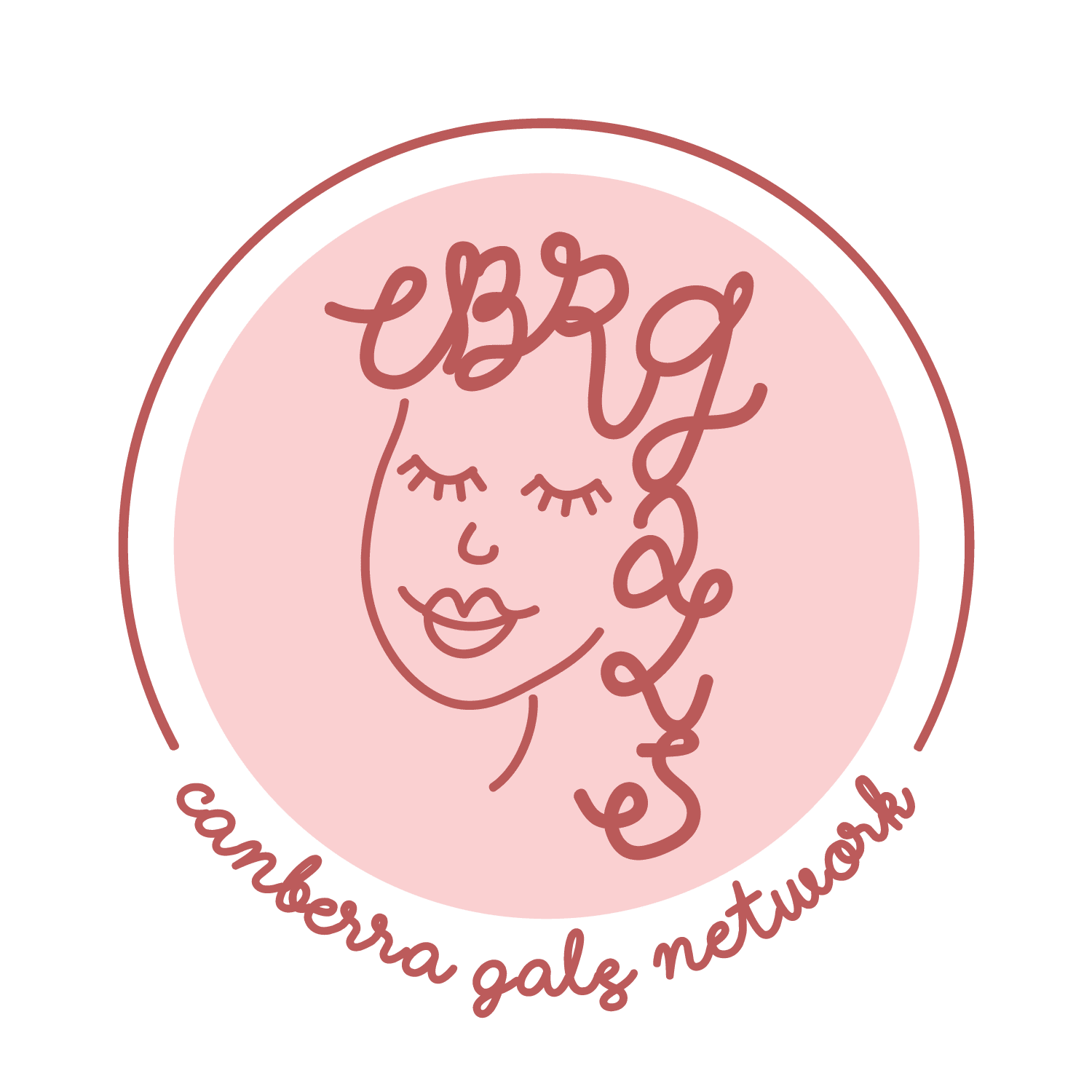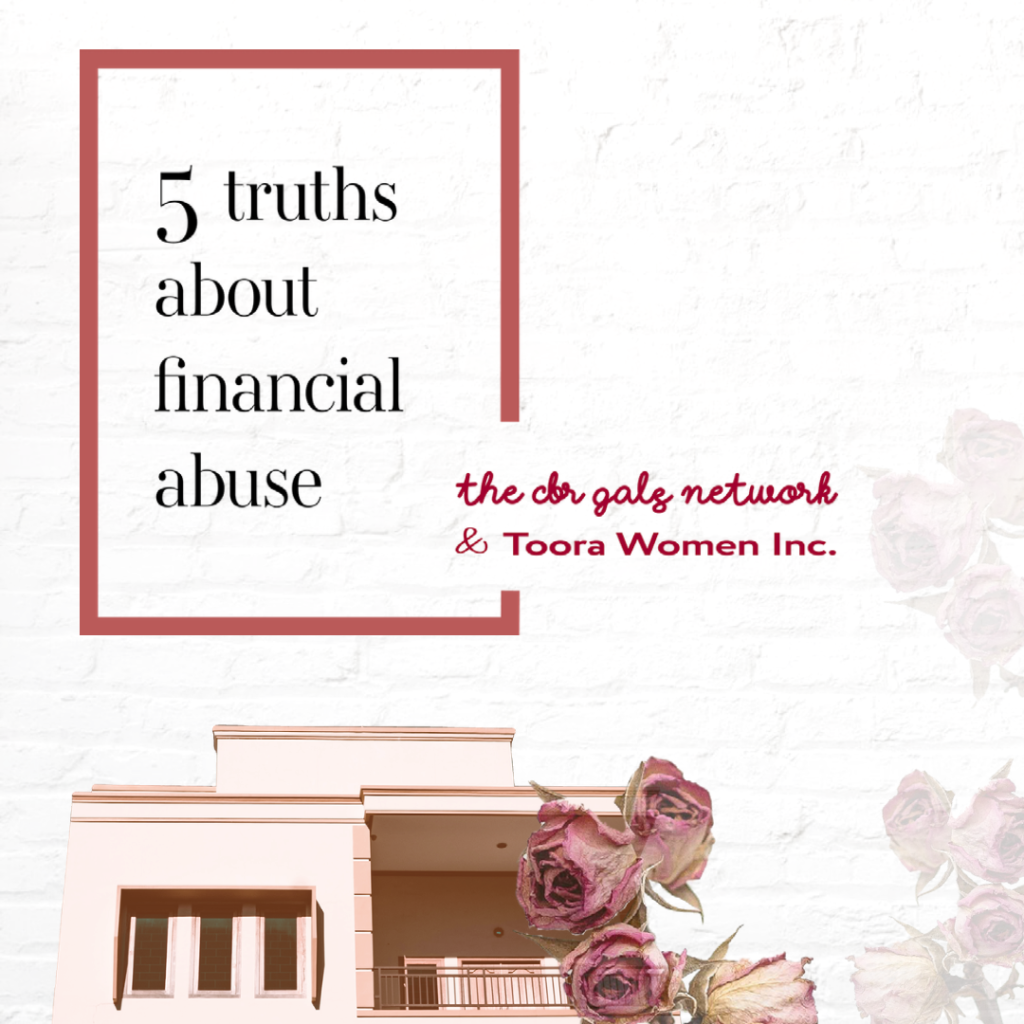
Toora Women Inc. for The CBR Gals Network Blog for Anti-poverty Week (11-17 October)
Content warning: This post deals with domestic and family violence. To speak with a counsellor, call 1800Respect.
It was the night before the fortnightly work morning tea. Anna* was tired. She wanted to sleep, but he was standing in the doorway, holding her handbag. ‘What’s this?’ he said, pointing to the packet of no-name biscuits she’d hidden in her bag. Store bought biscuits weren’t in the budget. Anna knew what was coming next.
It was that time of the month. The cramps and the bloating weren’t the reason Raisa* was anxious. She was out of tampons. She counted her coins, the ones she hid behind her library card in her wallet. They weren’t enough. She’d have to ask him for more. Raisa wondered how many times she could get away with telling her girlfriends she’d been caught by surprise and did they have any tampons they could spare?
Five signs you're experiencing financial abuse
Do you know women like Raisa and Anna? If their stories are familiar, you may be experiencing, or know a woman who’s experiencing, financial abuse. Like other forms of domestic and family violence, it’s often hidden – behind closed doors, behind self-blame, even behind smiles and promises to change.
Financial abuse can be difficult to spot. While everyone’s situation is different, here are five signs you may be experiencing financial abuse.
1. You don’t have a say over the family budget
Do you know what your family budget is? Do you get a say or are you told to accept the budget you’re given? Do you have to ask for money just to cover the basics? And, if you do, are you told that your needs are ‘a waste of money’?
Domestic violence is all about control – over your relationships, your opportunities, your life. Financial abuse limits your choices and your ability to care for yourself and your children. If you’re set an allowance, ridiculed for wanting a say in the family budget, or routinely told that your essential needs are ‘too expensive’ you may be experiencing financial abuse.
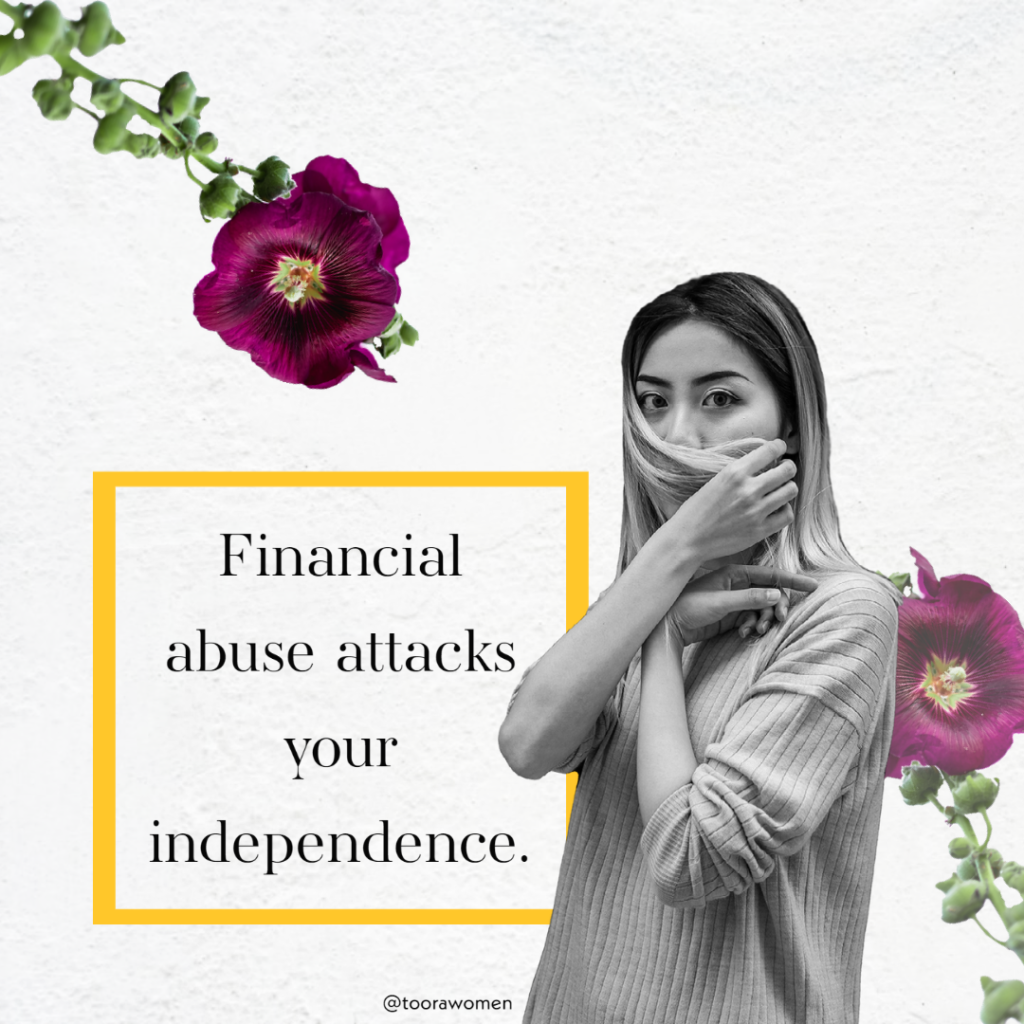
2. You don’t have control over your bank account
Do you know what’s in your bank account right now? Do you know your credit card limit and how much is owing on your cards? Do you know how to access your account and how to suspend any direct debits or transfers?
Being pressured to sign a loan, sell your property, or give someone access to your account is a form of financial abuse. If your partner spends money without telling you, transfers money without your consent, or hides bank statements from you, you may be in a financially abusive relationship.
3. Your career is ridiculed or sabotaged
Domestic violence attacks our independence. It can distort our perceptions, making us doubt our skills, our judgement, even ourselves. It can leave us feeling like we’re completely dependent on someone else. A job is one of the keys to independence. The respect you can get from work can help you see that you’re capable. A job can help reveal that you’re living with abuse.
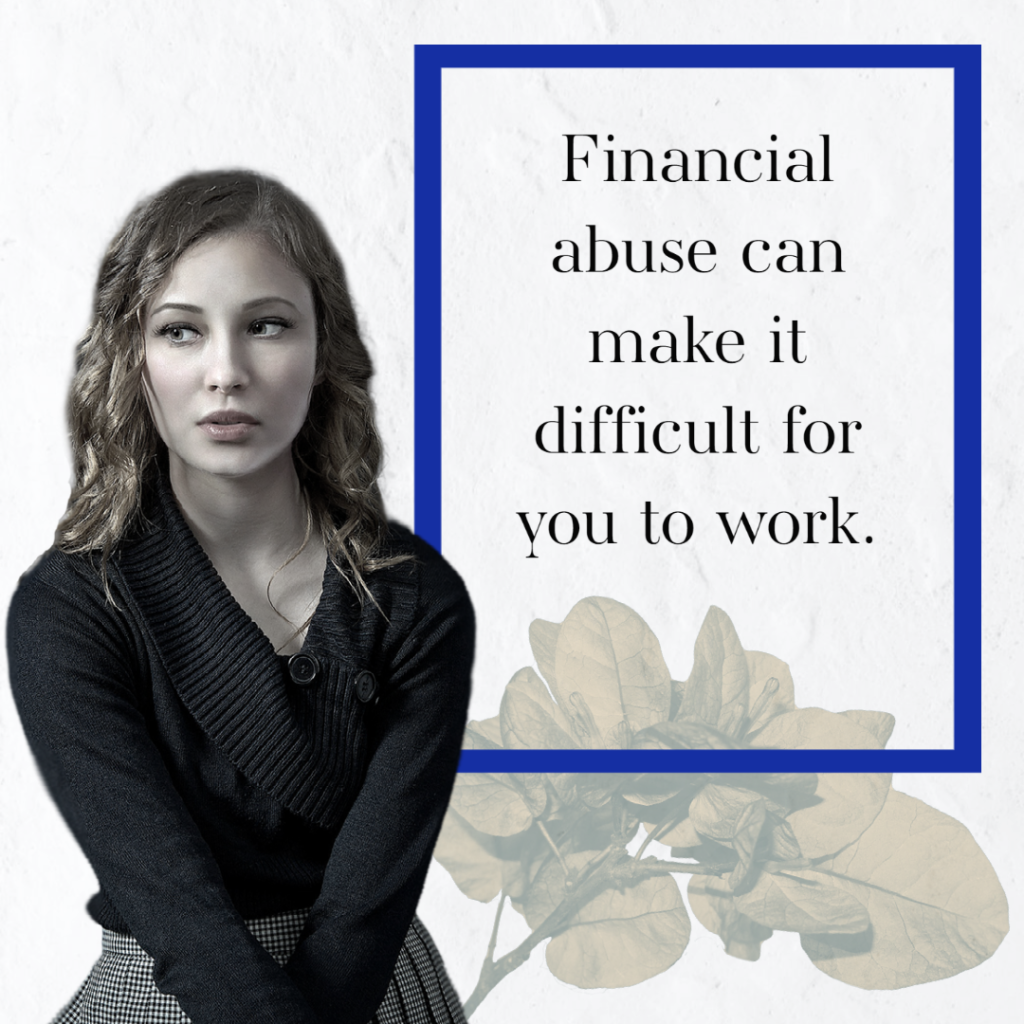
If your partner makes it difficult for you to work—cutting off access to the internet, hiding your keys, picking fights before major work projects are due, or insisting that you, and you alone, take time off to care for the children—it could be financial abuse. Similarly, if your partner tries to dictate when and where you work, you may be experiencing financial violence.
4. You’re blamed when the family ‘overspends’
Picture this: It’s the end of the month and your partner is going through the accounts. He turns to you and says, ‘We’re over the budget again. What exactly have you been buying?’
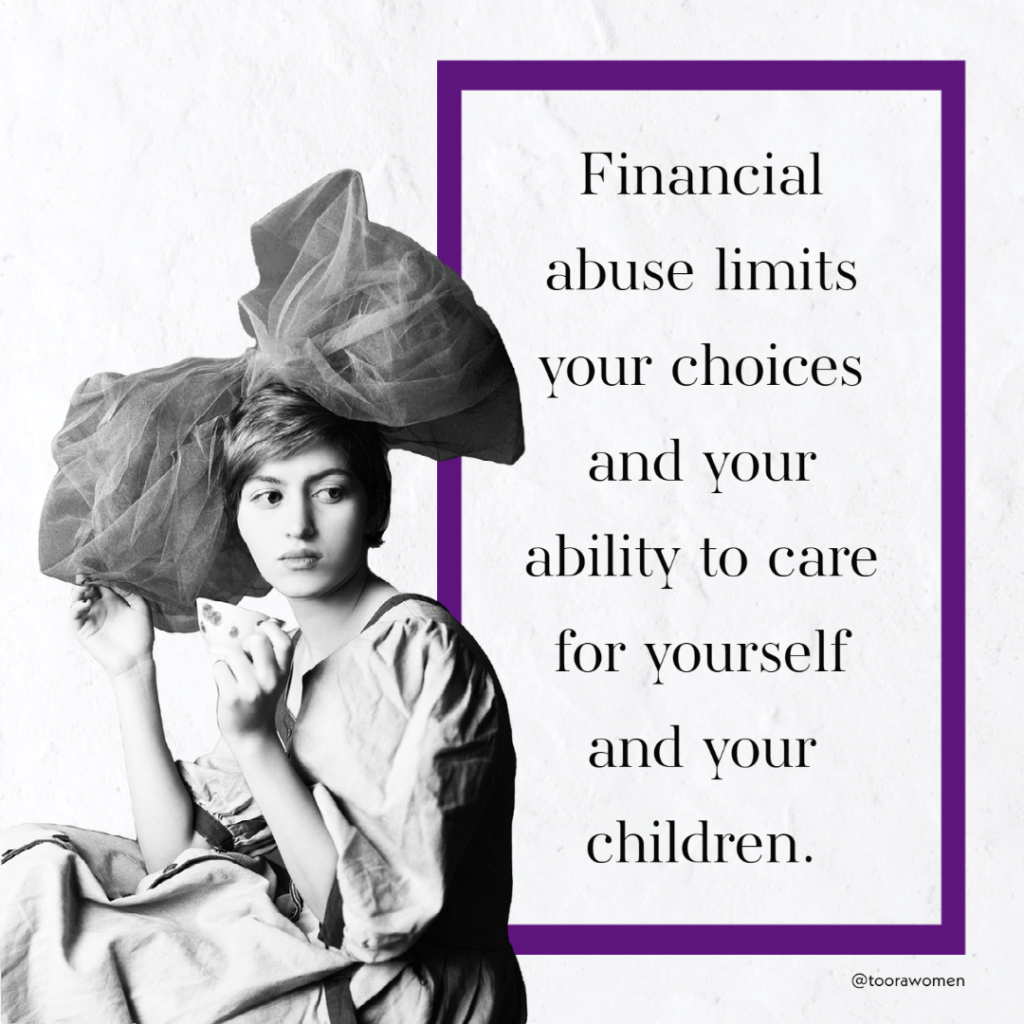
If your spending is constantly monitored, if you’re made to feel that you can’t be trusted with money, if you’re belittled for expenses beyond your control, you may be living with financial abuse.
5. You feel afraid to spend money
Abuse thrives on fear. For women experiencing financial abuse, everyday life is filled with fear: the fear of staying in the shower ‘too long’ and ‘wasting too much water’, the fear of turning the heater up ‘too high’, the fear of buying new shoes, getting a haircut or doing any of the basic things we do as Canberra women.
If your partner’s approach to the budget causes you to fear, or if the safest thing you can do is to neglect your needs, you may be experiencing financial abuse.
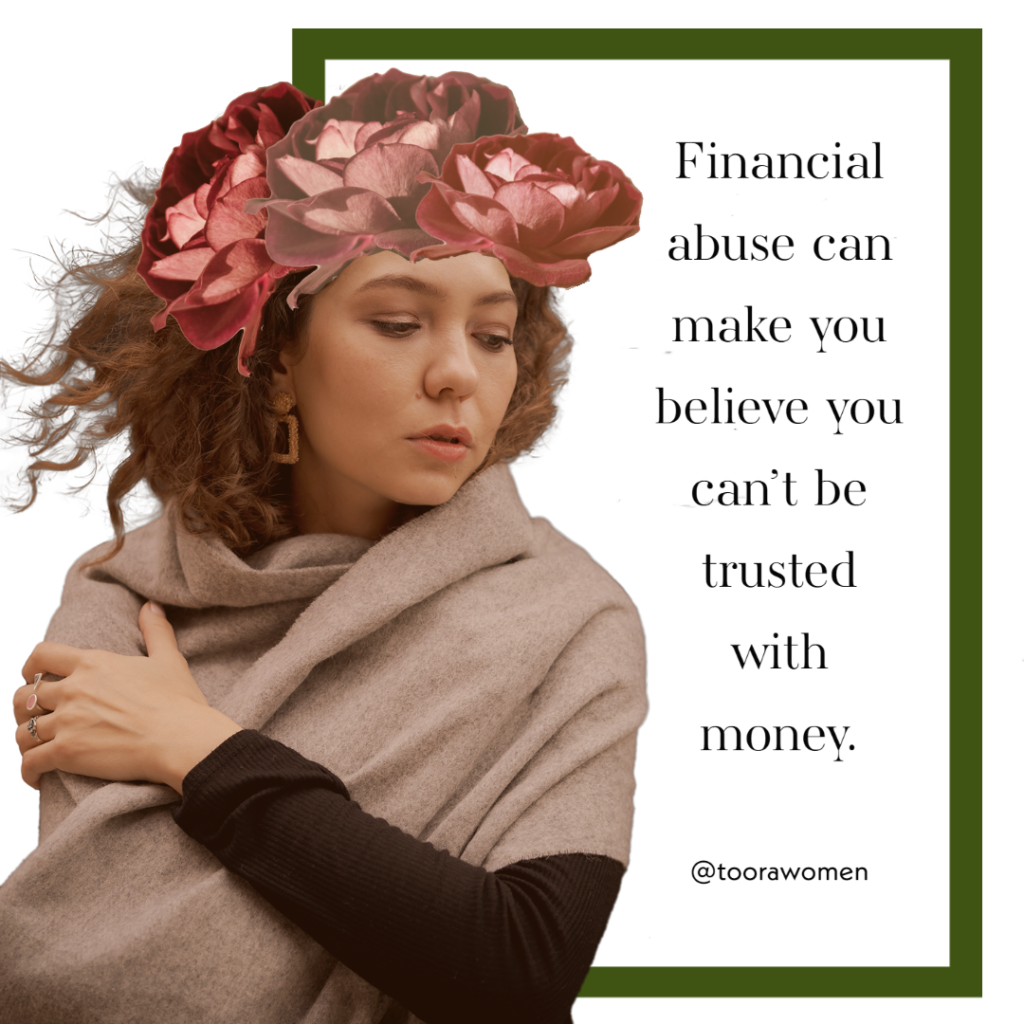
How you can protect yourself
If you’re living with financial abuse, please know that you’re not alone. There are other Canberran women just like you who understand. The abuse wasn’t their fault, and it’s not yours either.
You have options. More and more, governments and community organisations are recognising the signs and consequences of financial abuse. There’s a safety net held by Canberrans who believe in you.
When it’s safe to do so, reach out. You can call our domestic and family violence workers on 6247 2399. You can also call the ACT’s Domestic Violence Crisis Service 24-hour hotline on 6280 0900. DVCS provides crisis intervention, legal advocacy, support groups, referrals and information to children, young people and adults affected by domestic and family violence.
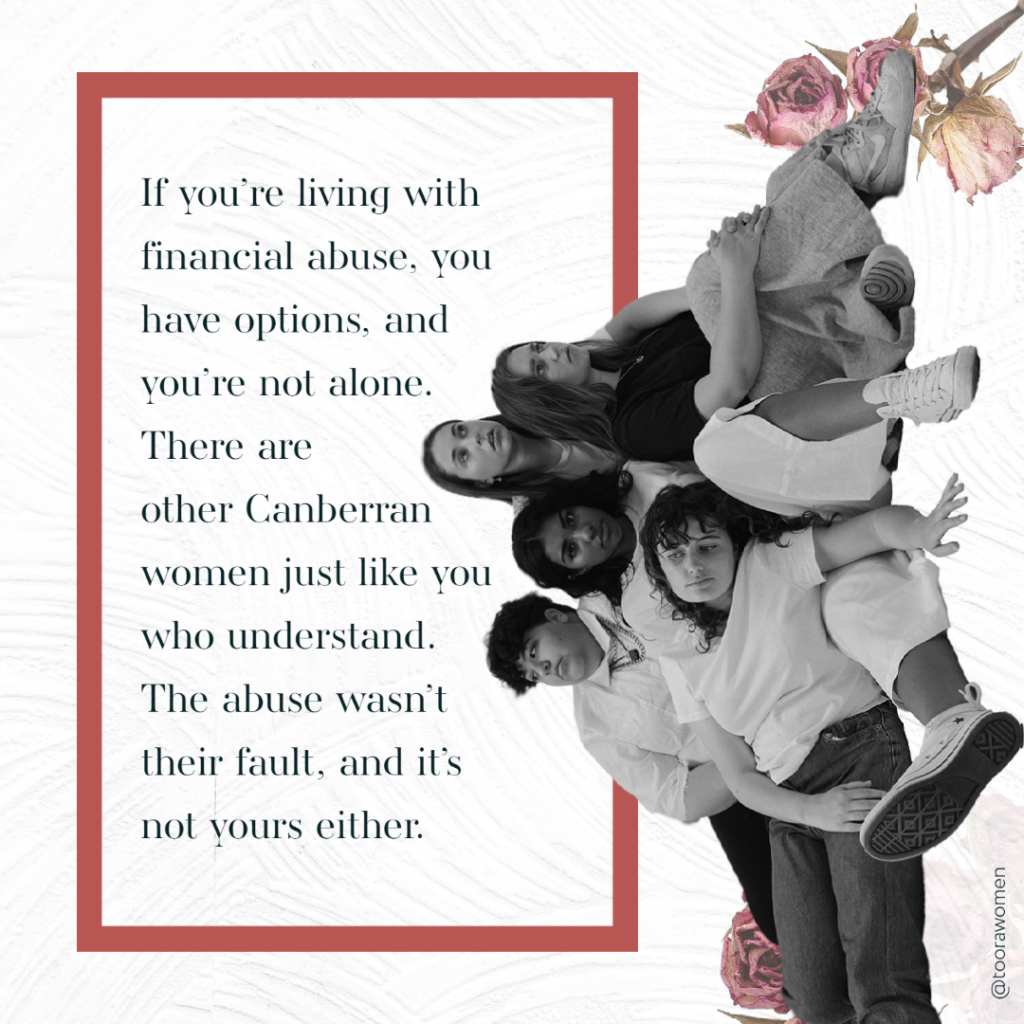
Toora Women Inc. provides residential and outreach support to Canberra women experiencing domestic abuse, homelessness or drug and alcohol dependency.
